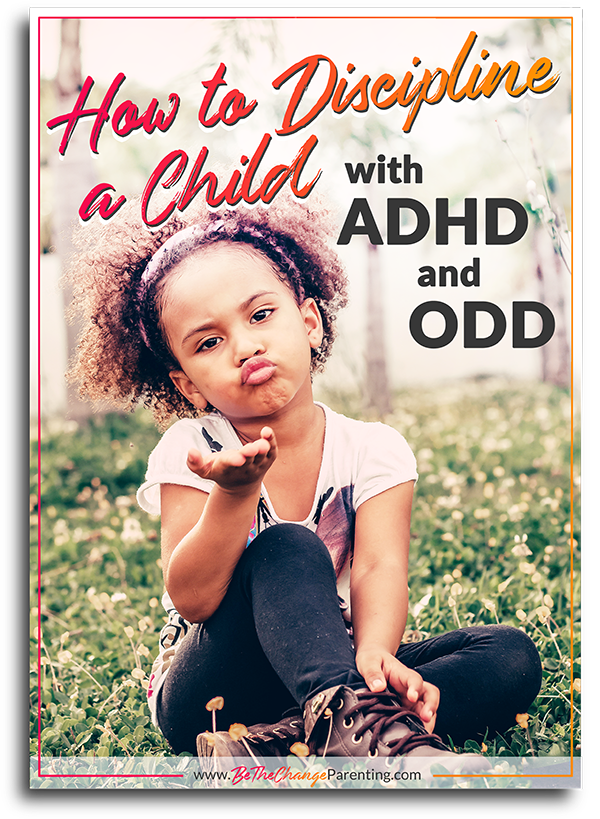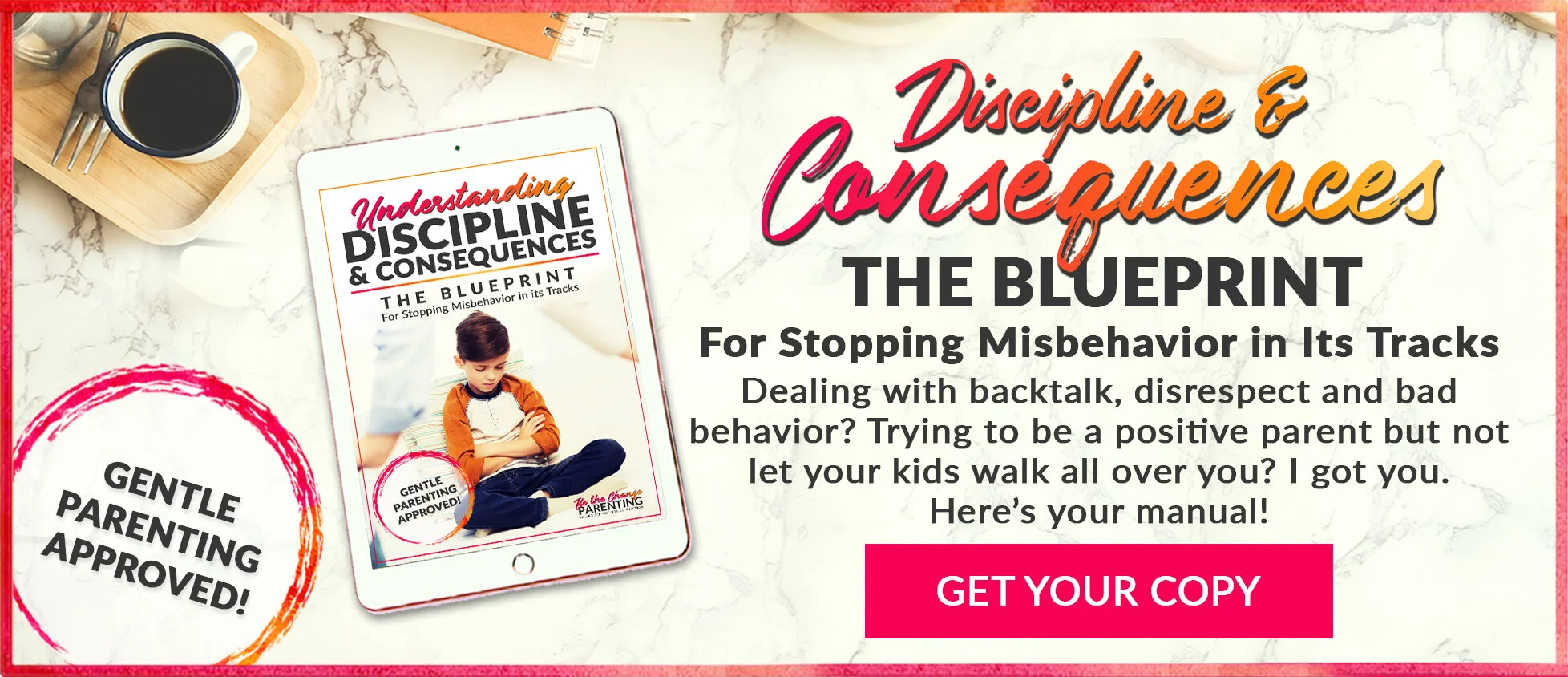How to Discipline a Child with ADHD and ODD
How to Discipline a Child with ADHD and ODD
You want to teach your child moral values – but how to delineate right from wrong when his behavior is all over the place with ADHD (Attention Deficit Hyperactivity Disorder) and ODD (Oppositional Defiance Disorder)?
If you’re busy just trying to survive the day’s tantrums and defiance, how can you ever take the time to concentrate on the values and traits that are important to you?
And the crazy thing is – as if ADHD isn’t enough to deal with – quite often it comes hand in hand with a good dose of ODD.
Oh - I get it alright. I never write about something I haven’t known firsthand myself – and this is definitely one of them!
Some of my own kids have ADHD and a few have also had ODD. The struggle can get really bad and so I take my hat off to you for trying to find a solution!
Here are my top tips for how to discipline a child with ADHD and ODD.
How to Discipline a Child with ADHD and ODD
1. Pick Your Battles Wisely
Don’t nag and nitpick about every single thing they do wrong – I’m sure they’ve already got other people doing that in their life!
Pick your battles very wisely!
Know when to ignore and when to take issue.
Maybe today you need to point out the homework but ignore the mess; maybe tomorrow you’ll need to notice the mess, or something else.
☞ If you like this post, you will love: When Can I Ignore Bad Behavior?
2. Give Attention to Positive Behaviors
Kids with ADHD are often looking for attention. Thing is, if you give the attention for the bad behaviors, they’ll just repeat them again and again cuz they know how to get your attention!
BUT – if you try to fulfill their need for attention (I know it’s insatiable!) for positive behaviors, and try as much as possible to ignore the mild misbehaviors, then they’ll know that positive behaviors are the way to get your attention.
Try as much as possible to ignore whining, loud noises, complaining, mild boundary testing, attempts to interrupt you, using mildly inappropriate language. All of these are an attempt to get you to notice – in a negative way.
☞ If you like this post, you will love: How to Talk So Your Kids LOVE to Listen
3. Have Fun Together
I know, I know. Other articles will tell you to stick to a routine, creative house rules, prioritize sleep, cut down on sugar intake, creative boundaries, be consistent. And they’re all right….
But.
Remember that your child has ADHD – which probably means that he loves to have FUN! And the fact that he’s got ODD probably means that your relationship is a bit strained.
Solution? Have fun together! Special time set aside just for the two of you, a time to look forward to. The more you do together, the more you connect. And there’s no better way to connect than through creating happy times together.
Fly a Kite. Play Catch. Bike Ride. Ice Skate. Go Boating. Visit Aunt Martha.
Get out and create laughs and smiles together in the sunshine.
Your relationship will bloom, and the memories, for both of you, will last a lifetime.
Remember: Parenting is a relationship. The more your child looks at your relationship in terms of the happy and enjoyable times, the more he wants to please you and make you happy. That means his ODD behaviors are less likely to come out to play.
☞ If you like this post, you will love: Positive Discipline: How to Get Mind Blowing Results
4. Allow for Natural Consequences
Natural consequences are the best kind of consequences – why? Because they’re completely natural, not imposed artificially – which means that your child learns a life lesson – and your relationship with him has not been negatively affected.
Often when we, as parents, have to give our kids a consequence – because we love them and want them to grow up knowing what’s right from wrong – and we’ve tried other routes but they just don’t seem to be getting the message – we give a consequence. And then we get whiplash.
Sometimes it’s an angry face, a nasty word, or even a full-on tantrum.
But when it’s a natural consequence – it didn’t come from you – so your relationship isn’t damaged.
That’s a win for you!
Problem?
Most parents (moms especially!) can’t stand to watch their child go through a natural consequence!
You know the feeling of just wanting to swoop in and save your poor little guy. Yep. That’s the feeling.
☞ If you like this post, you will love: Natural Consequences: The How, What & When
Even though you know that natural consequences are a part of life – and they’re a good learning experience – it’s so hard to watch your kids go through them! You want to save them from all the harshness out there in the world.
I totally get it!
But picture this. Instead of losing thousands of dollars when your son is in his twenties, he’s just going to lose a hundred dollars now when he’s 13.
Instead of watching your daughter fail out of University she’s just going to fail one class in high school and she’ll need to do summer school.
Natural consequences are the key.
To learn more about how to properly implement natural consequences see my eBook Understand Discipline and Consequences.
5. Get Educated
The more you learn and know about ADHD and ODD the more you’ll understand what your child is going through.
I myself have ADHD – and when I finally learned about what it means to have ADHD – I was able to let go of all the guilt I had for being late, disorganized, not on top of things, etc. And I learned a lot of tools for managing not only my own life – but for helping my kids.
☞ If you like this post, you will love: ADHD Mom: Tips for Managing ADHD as A Mom
The more you understand what’s going on inside your child, the more you’ll be able to find the right ways to get across to her - to inspire self-discipline, and to find the right ways to set boundaries and be consistent.
You’ll also want to take really good parenting classes to get top parenting skills – in addition to learning more specifically about ADHD and ODD. Good parenting classes will teach you essential parenting communication skills and relationship building skills, as well as give you the tools to deal with misbehavior and defiance.
Books: here are some great books on ADHD that I use as reference – which are the perfect resource for parents.
How to ADHD is an incredible YouTube channel where they answer so many questions – first and foremost How to Know if your have ADHD. Plus Jessica is super funny to watch!
6. Change a Child’s Behavior – by Changing Yours
In their article How To Discipline a Child with Opositional Defiance Disorder they quote a mother as saying “I am strong-willed as well, so it has been a battle of the wills. But instead of trying to change my daughter, I changed myself. It wasn’t easy…. but she stopped.”
As we all know, the definition of insanity is doing the same thing over and over again expecting a new result. So what are we waiting for to change it.
Be the change you wish to see in your child. Because whoever you are is likely to be who your children will become.
Sometimes you’re just butting heads with your strong-willed child – and it’s time to change the story.
Maybe you need to take some parenting classes?
Maybe you want to consider getting one-on-one parent coaching?
Maybe you just need to sit back and brainstorm – and find a better way to deal with what’s going on.
Use your God-given intuition – that was born with your child – the intuition that gives you the ability and wherewithal to know what’s right for your child.
You want to see your child change? It’s starts with you.
Be the change you wish to see in your child. Because whoever you are is likely to be who your children will become.
☞ If you like this post, you will love: 10 Personal Development Tips for Parents
7. Know When to Give Consequences – And When Not To
I know there are some parenting experts out there that say that all parenting should be done with positive only – and that consequences should not be used.
But I’m not one of them.
I hold positive parenting VERY highly, and I know that A LOT can be accomplished without turning to consequences – my whole parenting course is full of such tools – but sometimes there comes a time when you need to set boundaries, and be consistent with them.
That’s when it’s oh so important to know when to look the other way, when to use positive motivators, and when it’s time to come down with a consequence.
Not because we’re angry with our kids or we want to prove a point.
We give our kids consequences because we love them and we want to teach them right from wrong.
To learn more about how to properly implement consequences from a positive parenting perspective see my eBook Understand Discipline and Consequences.
☞ If you like this post, you will love: Natural Consequences: The How, What & When
8. Stay Calm & Be Patient
If ever there’s a good piece of parenting advice that I could give someone it would be – to just wait a while until your anger has passed.
Never give rebuke when one or both parties are in a low state.
I know that keeping your cool is super hard when it comes to ADHD kids – never mind more like super human strength when it comes to kids with ODD – but it’s worth its weight in GOLD!
When you can master patience – you can not only stay calm – you can listen deeply to what’s going on inside your child’s heart when he’s in a rant.
Actually, this is one of the first skills I teach in my free parenting class – Anger Management for Parents – how to keep your cool while listening to your child scream and vent – all the while listening actively and empathizing.
Yes, sometimes you need to teach your child to have more respect and not to yell at his parent. But it’s not always the time and place for those lessons. Sometimes it’s just the moment to listen and show a caring, empathetic, understanding ear.
The more you can keep your cool, the more ability you have to think clearly about the parenting situation at hand and how you can help your child best.
Patience is literally the key!








